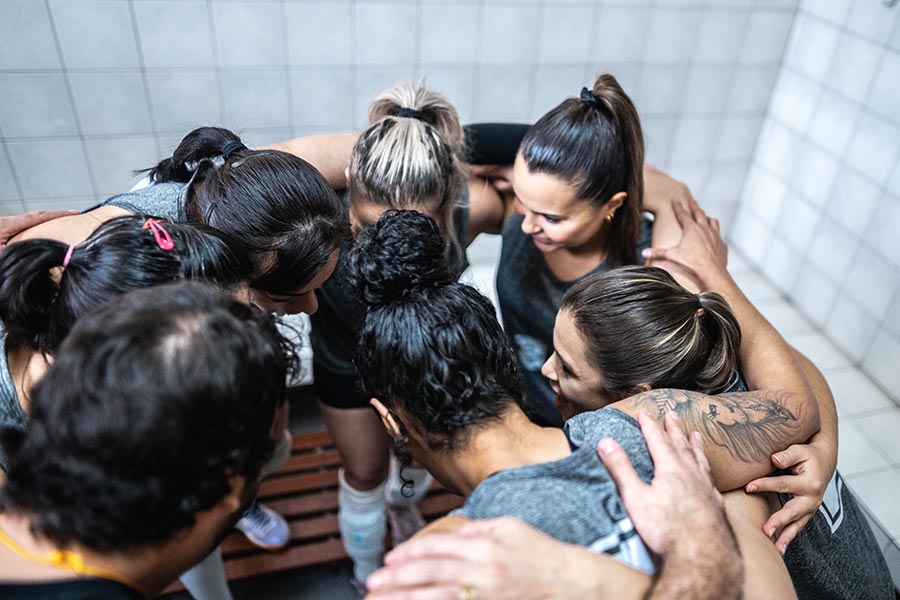Why Ignoring Youth Leadership Could Be The Biggest Mistake Your Business Makes Today
What if the secret to true leadership isn’t strutting around with a fancy title or dazzling everyone with perfection, but rather just being real—authentic, approachable, and downright human? I mean, who hasn’t admired those pro athletes who drop the superhero act and share their struggles, making them more ‘one of us’ than untouchable icons? Here’s a curveball: during a TYF Schools workshop, a teenage lad confessed, “I used to slag the lads if they got nervous. Now I think more before I speak.” That moment—simple yet profound—reminds us all that leadership isn’t some distant goal on a corporate ladder; it sprouts early, nurtured by genuine role models who lead through honesty and empathy. Intrigued? Let’s dive deep into how these real-life examples from the sports field are reshaping leadership, wellbeing, and even business culture in ways you might not expect. LEARN MORE
By Anna McHale, PhD researcher on the TYF Schools programme, University of Limerick
During one of our TYF Schools workshops, a teenage boy told us how hearing a pro rugby player talk honestly about their experiences with mental health and being a good teammate changed how he treated his own friends:
“I used to slag the lads if they got nervous. Now I think more before I speak.”
That moment was a simple but powerful reminder that leadership starts early, shaped by the people young people see and listen to.
What Makes a Good Role Model?
Through my research which examines the use of sportspeople as role models for wellbeing promotion, one thing is clear: young people don’t connect with perfection. They connect with authenticity. The most influential role models are relatable, genuine, and successful, not because they’re flawless, but because they’re real and honest.
“It was really nice to see the rugby players opening up and being authentic about their experiences, because it made us able to connect with them more as people and not just see them as sports stars”
Social learning theory supports this. Young people imitate what they see, especially from people they admire or relate to. Behaviour spreads, which can be a good thing if those behaviours are positive.
Role Models in Sport: Leadership in Action
Sport is a perfect place for early leadership development, sometimes even before young people realise they’re leading. It could be the captain encouraging a teammate after a bad play, or a squad player setting high standards by showing up early. Leadership is being modeled all the time.
Through TYF, we’ve seen young athletes pick up leadership skills just by watching their teammates.
“I would tie in being a role model with leadership massively. So I think the two of them kind of go hand in hand and I think it’s something that’s really important, something I like to model myself on in terms of being a role model and as a leader is transparency”
Simple behaviours like owning mistakes, supporting others, giving quieter voices space, aren’t big heroic gestures, but they matter. Over time, these habits spill over into other parts of life, like school, work, or even family.
TYF Insights: The Ripple Effect
One of the most interesting findings we’ve seen with TYF is how role models spark a ripple effect. When students see their role models in sports talking about respect, resilience, and asking for help, they don’t just hear it, they imitate it.
In focus groups, teens described checking in on friends more and judging less. Teachers also noticed better empathy and communication in classes that took part in TYF. What starts on the pitch ends up in school corridors too
“Just from seeing the Irish rugby players, the ambassadors for the Tackle Your Feelings programme creating short videos…you see lads that want to drive this and…be real leaders…We had our mental health week last week and the lads driving it in TY were helping first years with doing the coffee morning or setting up the sports day and just making sure that they’re asking lads are they OK.”
It shows one big truth: leadership isn’t about a fancy title, it spreads through what people actually do.

From Locker Room to Boardroom
So what can business learn here?
Just like in sport, workplace culture is shaped by behaviour, not by slogans on a wall. People follow what they see from leaders, especially under pressure. Authenticity, accountability, and real support build trust, and trust builds performance.
Workplace role models, just like athletes, should be honest and human. When they share setbacks and show up consistently, they prove that leadership isn’t about being perfect, it’s about making others feel valued.
If leadership is really ‘behaviour in action,’ then we can’t wait until someone has a ‘senior’ job title to develop it. Sport shows us that young people can lead if they have role models worth imitating and a culture that supports them. Businesses have the same chance. Investing in role models early means stronger, more resilient teams down the line.




















Post Comment